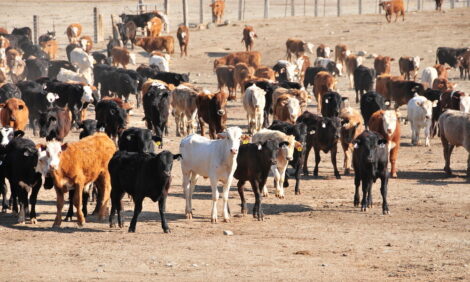



Trade, Labour Big Issues for Ag in Trump Presidency
US - The election of Republican candidate Donald Trump as the 45th President of the US could have long-term implications on labour and trade in the food and agriculture sector, according to a report from the Rabobank Food & Agribusiness Research and Advisory (FAR) group.“Republican-controlled Executive and Legislative branches could mean swift action when the new administration takes office,” notes Pablo Sherwell, Rabobank head of Food & Agribusiness Research and Advisory, North America.
“Our analysts and others around the world are keeping a close eye on trade, labour, the upcoming Farm Bill and regulations impacting production agriculture, as these areas are where potential policy changes could have longer-term implications on the industry as a whole.”
While President-elect Trump’s policies are yet to be clearly defined, his statements during the campaign suggest drastic changes from current policy could be on the horizon.
Short-Term Implications
The lack of market information creates uncertainty, and uncertainty generates market volatility. We saw this first-hand last week, when an initial uncertainty over President-elect Trump’s policy direction resulted in a short-term sell-off reaction by markets.
“Currently, the export share of US agricultural production represents more than 20 percent in volume and value terms, making US price formation highly dependent on foreign trade and therefore foreign currency,” said Sherwell.
Longer-Term Implications
Trade agreements, agricultural policy and labour will act as key areas where potential policy changes could have longer-term implications on the industry as a whole.
Trade Agreements: As the number-one global agricultural exporter, the US's agriculture sector is one of the main drivers of global agriculture and trade, reaching nearly $125 billion in 2016. Currently, the US exports commodities that complement the rest of the world’s food supply - any change to US agricultural trade agreements will not only affect global prices and trade dynamics but also US farmer margins.
Farm Bill 2018: The current Farm Bill is scheduled to be renewed by 2018. Regulatory reductions have been a policy direction advocated by President-elect Trump during his candidacy, and it is likely that the direction will shift even more toward an environment of reduced regulation.
Labour: The US food and agriculture industry is highly dependent on migrant labour, particularly in sectors such as produce, animal protein and food service operation. If immigration laws are enforced more strictly, business owners may face labour shortages, which would pressure their margins.
TheCattleSite News Desk


